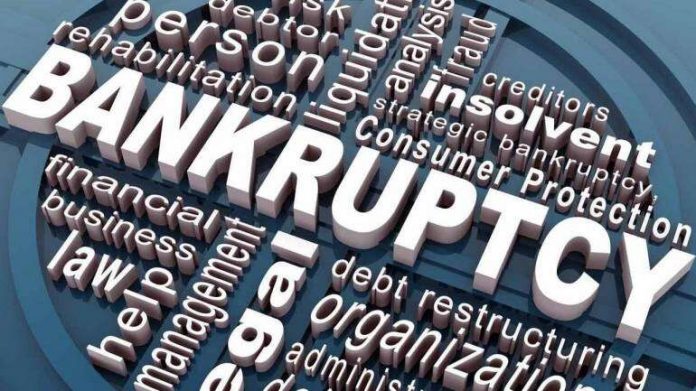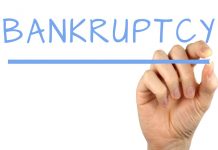This article is written by Niketa Chitnis and pursuing a Diploma in Advanced Contract Drafting, Negotiation, and Dispute Resolution. This article has been edited by Prashant (Associate, Lawsikho).
This article has been published by Sneha Mahawar.
Table of Contents
Introduction
If you live in Illinois and you come to know that you are in debt and you do not have the capacity to pay the same, bankruptcy laws in Illinois can protect you from creditors while you get rid of your debt. This law offers a start-over without any need to worry about bill collectors or a crushing debt load. In addition, state laws in Illinois allow its residents to protect some of their assets from creditors during their bankruptcy.
Bankruptcy is a court process that helps individuals having too much debt. The person filing under bankruptcy is known as the “debtor”. The people or businesses the debtors owe money to are the “creditors”.
Filing for bankruptcy shields the debtor from collection activity from creditors. This brings an “automatic stay”. Based on the type of bankruptcy the debtor has filed for, it can help the debtor to eliminate his debts.
The U.S. Bankruptcy Courts are federal courts subject to the U.S Bankruptcy Code. However, federal law allows states to make their own rules on which property can be protected by its residents from their creditors. This protected property is called “exempt property” and can help the debtors get on with their life after they have exited bankruptcy.
Some states offer their residents an option of choosing the federal bankruptcy exemptions which are provided under the bankruptcy code. However, Illinois is not among them. Filers under Illinois bankruptcy shall use the state law exemptions.
Types of bankruptcy
For a better understanding of the use of state exemptions during the bankruptcy process, let us get familiarized with the two types of personal bankruptcy:
Chapter 7 bankruptcy
Chapter 7 bankruptcy is often called “liquidation” bankruptcy because under this, the debtor is required to turn over all non-exempt property to a bankruptcy trustee who sells the same and uses those funds to pay off the debt to the creditors. Exemptions play a significant role under Chapter 7 filing because debtors end up losing most of the property that is not subject to an exemption. However, for exempt property, the debts are “discharged” or “cancelled”. This means the debtor no longer owes them. Debtors need to meet a strict income threshold to qualify to file for bankruptcy under Chapter 7.
Chapter 13 bankruptcy
Chapter 13 bankruptcy allows people with a stable income to restructure most of their debt to pay it off over a period of three to five years. Under this chapter, payments are made to the bankruptcy trustee in accordance with the plan approved by the court. The trustee then pays the creditors, this usually eradicates some of the debt of the debtors. This chapter is quite popular among homeowners as they often get to keep their homes. Debtor shall have sufficient income for making payments for his debt, to qualify to file for bankruptcy under Chapter 13.
One of the major benefits offered by either type of bankruptcy is that it brings an automatic stay from the court when the debtor files for bankruptcy. The stay stops all collection activity from the creditor which also includes foreclosures and court cases. This stops harassment from collection agencies while the debtor works to resolve their debt problem through bankruptcy.
Secured vs. Unsecured Debt
During bankruptcy, debts are commonly placed into one of the two categories, i.e., secured debt and unsecured debt. The secured and unsecured debts are treated differently under bankruptcy, and it dictates how much of the debt can be eradicated under it.
A secured creditor has the right to reclaim the property under debt if the debtor fails to pay off the debt. These usually include loans for which the debtor has signed a contract giving the creditor the right to seek a lien on the collateral property, in case of failure to pay off the debt. Since secured creditors usually reserve their right to reclaim the property in bankruptcy, debtors are mostly required to either give up the [property or work out a repayment plan with the creditor. The most common type of secured debt includes home mortgages and car loans.
Debt is unsecured when the creditor has no right to reclaim the property of the debtor on its failure to repay the debt. The most common type of unsecured debt includes credit card debts, court judgments, and medical bills. These debts are most likely to be eradicated during bankruptcy, as unsecured creditors do not hold any collateral for their debt. However, there are some priority unsecured debts such as unpaid child and spousal support which cannot be eradicated.
What happens to the debt in chapter 7
When a debtor files for bankruptcy under Chapter 7, they can normally discharge most of the unsecured debt. Debtors will commonly have three options for secured debt.
Return the property to the creditor
On choosing this option, the debtor will lose the property, but generally, they will be free from making any additional payments.
Keep the property and continue making payments
A debtor can choose this option if the state exemption covers the equity in the item.
Purchase the property outright
This option is quite rare for cases under Chapter 7 because the debtor is usually required to make a cash payment and most of the assets will then be turned over to the trustee.
What happens to the debt in chapter 13
This chapter allows the debtors to repay their creditors over a period of three to five years. It is essential that the court approves such a plan. The court may compel the creditors to reduce or restructure the debt. Mortgage payments are not included in the plan, however, a trustee may negotiate a payment agreement with the lender if the debtor is late with the payments. Unsecured creditors are paid with the residual income left after repayment of secured creditors. At the conclusion of the plan, any unsecured debt that is not paid will be discharged.
Eligibility for bankruptcy in Illinois
The debtor shall have low income to qualify for filing for bankruptcy under Chapter 7 in Illinois. This is usually done through one out of two means tests.
To qualify for the first means test, the household income of the debtor is less than the median household income for a similarly sized Illinois household. For example, U.S Census data shows that the median household income for a three-person Illinois household was USD 92,711 in November 2020. So, a debtor living in a three-person household having a monthly income below USD 92,711 shall qualify for filing for bankruptcy under Chapter 7.
If the household income of the debtor is above the state median, they can still qualify for bankruptcy under Chapter 7 based on their disposable income. The monthly disposable income of the debtor is calculated by subtracting their monthly expenses from their monthly income. If the calculation shows that the debtor has little to no disposable income each month, they can file for bankruptcy under Chapter 7.
To file for Chapter bankruptcy under Chapter 13, the debtor shall show that they have a steady income, and their unsecured debt is not more than USD 149,275. Further, the secured debt cannot total more than USD 1.26 million.
Illinois bankruptcy exemption
Illinois has its own exemption system that can be used by anyone desiring to file for bankruptcy in the state. If debtors have any property that falls within one of these exemptions, they can protect it from creditors during bankruptcy and use it to start over after the bankruptcy.
In Illinois, married couples who jointly file for bankruptcy can double their exemption if they both hold an ownership interest in the property.
Homestead exemption
The homestead exemption is not very generous in Illinois, even though the cost of living is quite high in some parts of the state. Debtors can claim an exemption of up to USD 15,000/- of the equity they have in their home. This amount can double to USD 30,000/- if they file for bankruptcy jointly and own a home together. This can be used to protect real or personal property, including mobile homes, condos, co-ops, lots, buildings, or farms. A spouse or child can claim the home, in case of the death of the homeowner.
Wage exemption
Illinois allows exempting 85% of the gross earnings of the debtor or 45 times the federal hourly minimum wage, whichever is higher.
Vehicle exemption
Debtors are allowed to protect up to USD 2,400 of equity in a motor vehicle.
Wildcard exemption
Debtors can apply the Illinois wildcard exemption to property up to USD 4,000/- that would otherwise not be exempt. However, such an exemption cannot be used to protect a real estate or wages.
Personal property exemption
A wide range of personal property can be exempted in Illinois. Such exemption includes necessary clothing, family pictures, bible and schoolbooks, prepaid tuition trust funds, a certificate of title to any watercraft of more than 12 feet, prescribed home health aids, etc.
Government benefit exemptions
These exemptions include unemployment compensation, social security, veteran’s benefits, worker’s compensation also including worker’s occupational disease compensation, crime compensation, and certain federal restitution payments.
Insurance exemptions
Certain insurance benefits are exempt under Illinois bankruptcy, including life insurance proceeds to the debtor’s spouse or child if needed for support, health and disability benefits, benefits from a fraternal society, etc.
Other exemptions
These exemptions include alimony and child support, property of the business partnership, awards from wrongful death lawsuits or settlements, personal injury lawsuit awards and settlements up to USD 15,000/-, pre-need cemetery sales funds, care funds, and trust funds.
Conclusion
Bankruptcy is a legal proceeding involving a person or business that is unable to repay its outstanding debts. The bankruptcy process begins with a petition filed by the debtor, which is most common, or on behalf of creditors, which is less common. All of the debtor’s assets are measured and evaluated, and the assets may be used to repay a portion of the outstanding debt. Bankruptcy can be filed under Chapter 7 or Chapter 13 in Illinois. Illinois allows a list of exemptions for debtors apart from the exemptions allowed by federal courts.
Reference
- https://www.findlaw.com/bankruptcy/bankruptcy-laws-by-state/illinois-bankruptcy-exemptions-and-law.html#:~:text=If%20you%20live%20in%20a,based%20on%20your%20disposable%20income.
- https://www.illinoislegalaid.org/legal-information/filing-bankruptcy-0
- https://www.investopedia.com/terms/b/bankruptcy.asp
Students of Lawsikho courses regularly produce writing assignments and work on practical exercises as a part of their coursework and develop themselves in real-life practical skills.
LawSikho has created a telegram group for exchanging legal knowledge, referrals, and various opportunities. You can click on this link and join:
Follow us on Instagram and subscribe to our YouTube channel for more amazing legal content.
 Serato DJ Crack 2025Serato DJ PRO Crack
Serato DJ Crack 2025Serato DJ PRO Crack











 Allow notifications
Allow notifications


